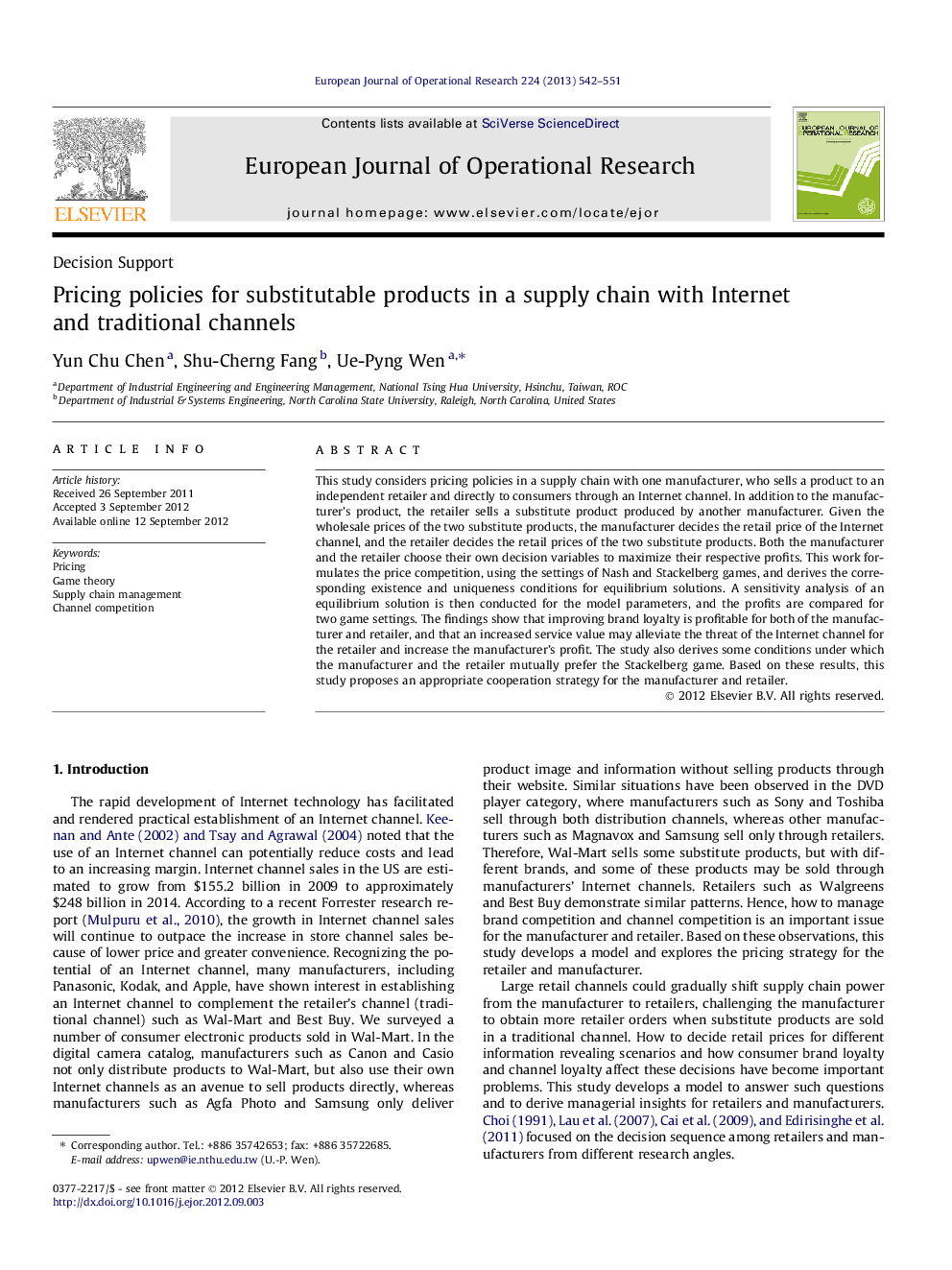| Article ID | Journal | Published Year | Pages | File Type |
|---|---|---|---|---|
| 480085 | European Journal of Operational Research | 2013 | 10 Pages |
This study considers pricing policies in a supply chain with one manufacturer, who sells a product to an independent retailer and directly to consumers through an Internet channel. In addition to the manufacturer’s product, the retailer sells a substitute product produced by another manufacturer. Given the wholesale prices of the two substitute products, the manufacturer decides the retail price of the Internet channel, and the retailer decides the retail prices of the two substitute products. Both the manufacturer and the retailer choose their own decision variables to maximize their respective profits. This work formulates the price competition, using the settings of Nash and Stackelberg games, and derives the corresponding existence and uniqueness conditions for equilibrium solutions. A sensitivity analysis of an equilibrium solution is then conducted for the model parameters, and the profits are compared for two game settings. The findings show that improving brand loyalty is profitable for both of the manufacturer and retailer, and that an increased service value may alleviate the threat of the Internet channel for the retailer and increase the manufacturer’s profit. The study also derives some conditions under which the manufacturer and the retailer mutually prefer the Stackelberg game. Based on these results, this study proposes an appropriate cooperation strategy for the manufacturer and retailer.
► We model the price competition using the settings of Nash and Stackelberg games. ► Improving brand loyalty is profitable for both the manufacturer and the retailer. ► The added service may alleviate the threat of Internet channel for the retailer. ► A cooperation strategy is proposed for the manufacturer and the retailer.
